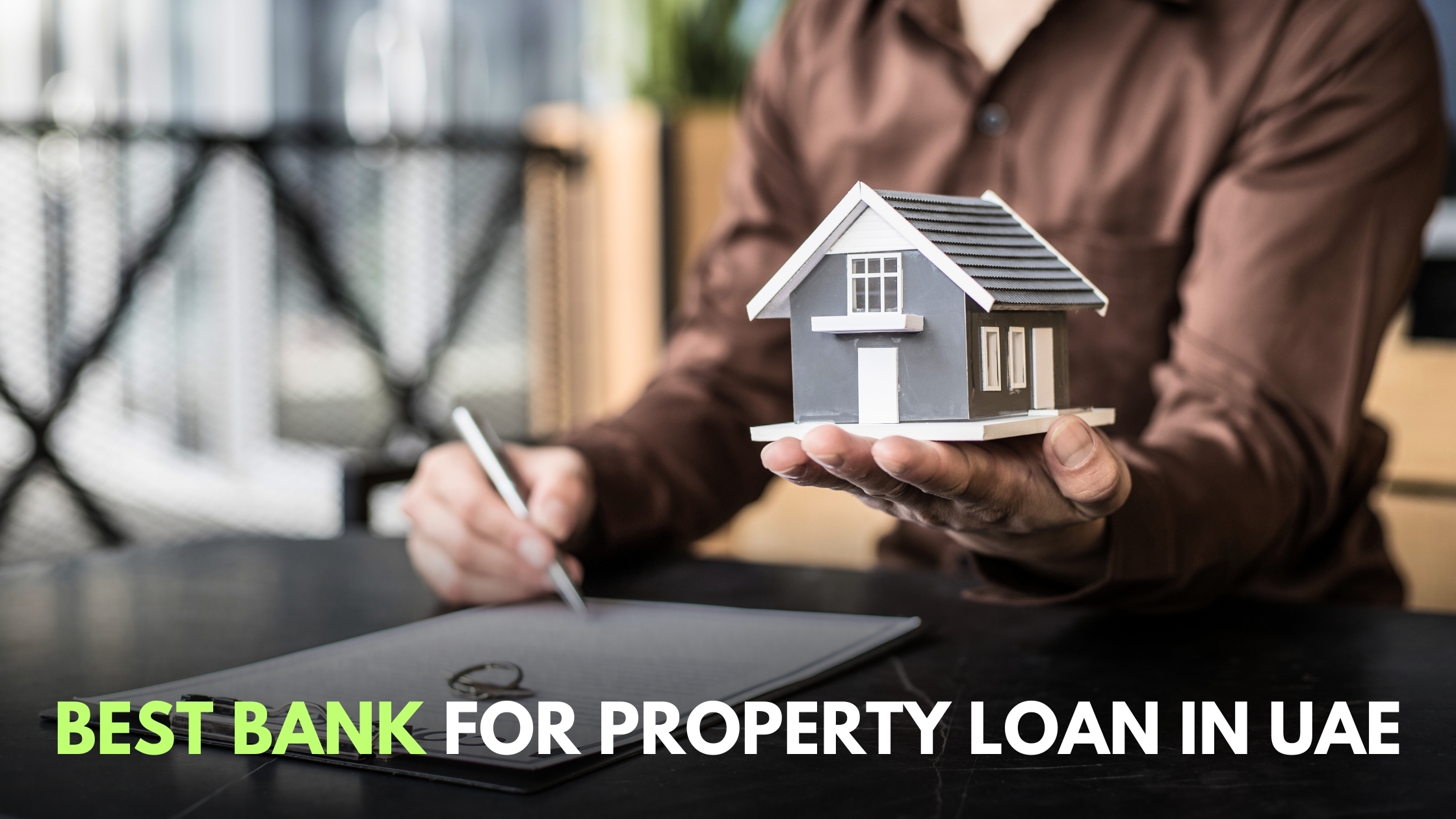Every bank has its unique offerings. Some excel in specific areas while others cater to different needs. Choosing a bank for property loans depends on factors like interest rates, down payments, and insurance. For first-timers, understanding these details can be challenging. However, we’ve been working on this for many years, and many of our visitors have successfully applied for loans based on our advice and are satisfied. That’s why, after thorough research, we bring you a list of best banks for property loans in the UAE.
By the end, you’ll have a clear idea of which banks deserve your consideration, ensuring a smooth and rewarding home-buying experience.
Quick Comparison of Best Bank For Property Loan In UAE
- Dubai Islamic Bank (DIB): Lowest rates, flexible payments
- RAK Bank: Emergency fund flexibility
- Commercial Bank of Dubai (CBD): Hassle-free mortgage process
- Abu Dhabi Islamic Bank (ADIB): Sharia-compliant financing
- Emirates Islamic Bank (EIB): Off-plan property financing, Islamic financing
- Standard Chartered Bank: Reliable long-term service
Alright, let’s move into a more detailed comparison of these top banks for property loans in Dubai. As a long-time resident and financial industry expert, I’ve seen firsthand how the right mortgage lender can make or break your home-buying experience. It’s not just about securing the lowest interest rate – factors like flexibility, customer service, and Sharia-compliance can be equally important depending on your unique needs.
1. Dubai Islamic Bank (DIB)
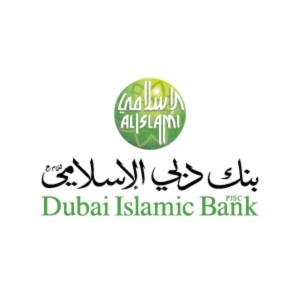
Features and Benefits
- Consistently offers some of the lowest profit rates in the market, helping you save on overall borrowing costs
- Allows paying 10-20% of loan principal annually without incurring extra fees, giving you the flexibility to reduce your debt faster if you have surplus funds
- As an Islamic bank, all products are Sharia-compliant, ensuring your financing aligns with your faith and values
- Extensive branch network and digital banking services for convenient access to your loan account
2. RAK Bank
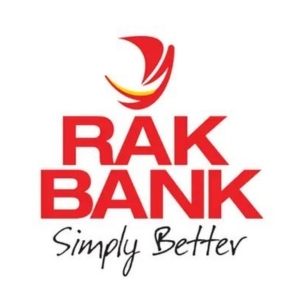
Features and Benefits
- Unique “Home in One” account lets you park emergency funds in an interest-free account linked to your mortgage
- These parked funds can be withdrawn anytime without penalties, providing a safety net for unexpected expenses or temporary income loss
- Competitive profit rates and flexible repayment terms tailored to your financial situation
- Helpful mortgage advisors guide you through the application process and provide ongoing support
3. Commercial Bank of Dubai (CBD)
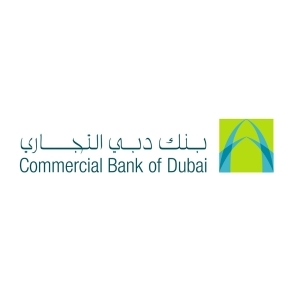
Features and Benefits
- Straightforward and transparent mortgage application process, with clear documentation requirements and timelines
- Competitive rates and a range of repayment terms to suit different budgets and preferences
- Responsive customer service team and designated relationship managers ensure smooth communication and quick resolution of queries
- Online banking portal and mobile app for easy tracking and management of your mortgage payments
4. Abu Dhabi Islamic Bank (ADIB)
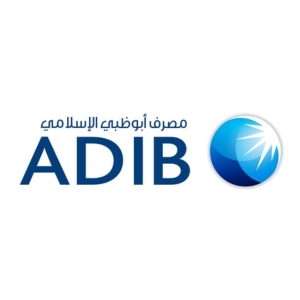
Features and Benefits
- Wide range of Sharia-compliant home financing solutions, including Ijarah (lease-to-own) and Murabaha (cost-plus financing)
- Profit rates are competitive with other Islamic banks and can be fixed or variable based on your risk appetite
- Dedicated Islamic banking advisors help you understand the unique features and benefits of each product
- Flexible repayment options and the ability to make partial or full advance payments without penalties
5. Emirates Islamic Bank (EIB)
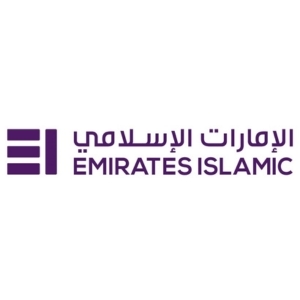
Features and Benefits
- Preferred bank for many off-plan property developers, with exclusive partnerships and attractive payment plans
- Variable profit rates are linked to EIBOR (Emirates Interbank Offered Rate) plus a fixed profit margin, allowing you to benefit from market fluctuations
- 100% finance option available for UAE Nationals, reducing upfront cash investment
- Range of Sharia-compliant products like Ijarah and Forward Ijarah (for under-construction properties)
6. Standard Chartered Bank
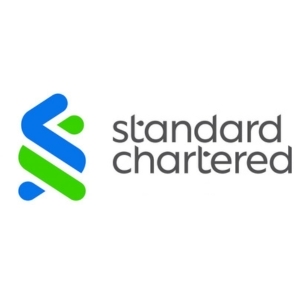
Features and Benefits
- Consistent and reliable service with a long track record in the UAE mortgage market
- Competitive rates and a choice of fixed or variable pricing to suit your risk profile
- Expert mortgage advisors provide unbiased advice and support throughout the life of your loan
- Global banking network and 24/7 digital services for NRIs and expats with international financial needs
Ultimately, the best mortgage loan lender for you will depend on your specific requirements – whether that’s the absolute lowest rate, flexibility in payments, or Sharia-compliance.
It’s always wise to compare personalized quotes from multiple banks before making a decision.
Also keep in mind that banks constantly update their offerings, so it’s important to check the latest rates and promotions directly.
I hope this comparison helps you narrow down your choices and find the perfect mortgage partner for your Dubai property purchase.
Feel free to reach out if you have any further questions – I’m always happy to share my insights.
Factors To Look For When Looking For Best Banks for Property Loans In UAE
1. Interest Rates and Profit Margins
As a savvy property investor in Dubai, one of the first things you’ll want to look at when comparing mortgage options is the interest rate or profit margin.
For conventional loans, pay close attention to the bank’s EIBOR (Emirates Interbank Offered Rate) plus the fixed profit margin they charge on top. The lower this combined rate, the less you’ll pay in interest over the life of your loan.
If you’re considering Islamic financing, you’ll need to compare the profit margins offered by different Sharia-compliant lenders. These rates can vary significantly between banks, so it pays to shop around.
Another key decision is whether to opt for a fixed or variable rate. Fixed rate mortgages give you the security of knowing exactly what your monthly payments will be, but you may end up paying more if market rates drop.
Variable rates can be cheaper initially but expose you to the risk of higher payments if rates rise. Consider your long-term plans and risk appetite when making this choice.
2. Additional Costs
One of the biggest mistakes I see property buyers make is focusing solely on the interest rate without considering the full cost of their mortgage. In Dubai, there are several additional fees that can add up quickly.
First, you have the Dubai Land Department (DLD) transfer fee, which is 4% of the purchase price. This is a significant upfront cost that you’ll need to budget for. Then there are various bank processing and administration fees, which can range from a few hundred to a few thousand dirhams.
If you’re buying an off-plan property, be aware of any developer-imposed registration or booking fees. These can be negotiable, so don’t be afraid to push back if they seem unreasonable.
The lesson here is to look beyond the headline interest rate and factor in all the additional costs when comparing mortgage options. A slightly higher rate with lower fees may work out cheaper overall.
3. Down Payment Requirements
For expats looking to buy property in Dubai, the maximum loan-to-value (LTV) ratio is typically 75% for your first property. This means you’ll need to have at least 25% of the purchase price saved up as a down payment, plus enough to cover the DLD transfer fee and other administrative costs.
In reality, I advise my clients to aim for a 30-35% down payment to give themselves a buffer for unexpected expenses. The more you can put down upfront, the lower your monthly mortgage payments will be.
It’s also worth noting that some banks may offer higher LTV ratios for certain properties or developments. For example, if you’re buying in a sought-after area like Downtown Dubai or the Palm Jumeirah, you may be able to secure an 80% LTV. However, these higher ratios often come with stricter eligibility criteria and higher interest rates.
4. Bank and Developer Partnerships
If you’re buying an off-plan property directly from a developer, it’s worth checking if they have any preferred banking partners. Many of the big developers in Dubai, such as Emaar, Dubai Properties, and Damac, have established relationships with certain banks that can offer exclusive rates and deals to their customers.
These partnerships can be a double-edged sword though. On one hand, you may be able to secure a lower interest rate or a higher LTV ratio. On the other hand, you may be limited in your choice of banks and may not be getting the best overall deal.
My advice is to always shop around and compare offers from multiple banks, even if the developer is pushing a particular lender. Don’t be swayed by flashy marketing or high-pressure sales tactics – focus on the numbers and choose the mortgage that best fits your financial situation.
5. Loan Conditions and Penalties
Another critical factor to consider when choosing a mortgage lender is the flexibility of their loan conditions. Some banks may offer attractive rates but then lock you in with rigid repayment terms or hefty penalties for early settlement.
In the past, banks like Tamweel were known for allowing borrowers to make partial or full repayments without any penalties. This was a great option for investors who wanted the flexibility to pay off their mortgage faster if they had extra funds available.
However, in recent years, many banks have tightened their policies and now charge early settlement fees of 1-2% of the outstanding loan amount. This can add up to a significant sum if you’re looking to sell or refinance your property before the end of the loan term.
Before signing on the dotted line, make sure you fully understand the bank’s policies on early repayment, late payment penalties, and any other conditions that could impact your long-term costs.
6. Insurance Options
When taking out a mortgage in Dubai, you’ll typically be required to have life insurance and property insurance in place. However, the options offered by local banks can be quite limited compared to what you might find in more mature markets.
Many banks here will only offer a basic life insurance policy that pays out the outstanding loan amount in the event of the borrower’s death. This may not provide sufficient coverage for your family’s needs, especially if you have other debts or dependents.
Similarly, the property insurance offered by banks may not cover things like temporary accommodation costs if your home becomes uninhabitable due to damage or repairs. It’s important to read the fine print and understand exactly what is and isn’t covered.
To ensure adequate protection, I often advise my clients to seek out independent insurance options in addition to what’s offered by their bank. This may cost a bit more upfront but can provide invaluable peace of mind in the long run.
7. Property Type and Location
Finally, when choosing a mortgage lender, it’s important to consider the type of property you’re buying and its location within Dubai.
In general, villas tend to be seen as more stable investments than apartments, as they have lower supply and are less impacted by factors like oversupply or high community fees. This means that banks may be more willing to offer favorable rates and terms for villa purchases.
That said, apartments in high-demand areas like Dubai Marina, Downtown Dubai, or The Greens can still be excellent investment opportunities. These communities have consistently strong rental yields and occupancy rates, which can make it easier to service your mortgage payments.
If you’re looking for more speculative investments with the potential for capital gains, areas like Jumeirah Village Triangle (JVT), Jumeirah Village Circle (JVC), or Dubai South (formerly known as Dubai World Central) may be worth considering. These are newer developments where prices are still relatively low but are expected to rise as infrastructure and amenities improve.
Ultimately, the best location for your property purchase will depend on your budget, investment goals, and personal preferences. But by understanding how different property types and areas are perceived by lenders, you can make a more informed decision about which mortgage options to pursue.
We’ve covered a detailed article on Home Loan tenure In Dubai. You should give it a read!
How to Apply for a Mortgage in Dubai? 5 Steps Guide
Let’s talk about how to apply for a mortgage in Dubai. As someone who’s been through this process myself and helped countless others navigate it, I can tell you that it’s not as daunting as it may seem. With a bit of preparation and insider knowledge, you can secure the financing you need to make your property dreams a reality.
1. Pre-Approval – Your First Step
Before you start house-hunting in earnest, it’s wise to get pre-approved for a mortgage. This basically means that the bank has looked at your financials and given you an in-principle thumbs up.
To get pre-approved, you’ll need to submit some essential documents. If you’re a salaried employee, that means things like your passport, Emirates ID, bank statements, and a salary certificate from your employer. If you’re self-employed, you’ll need to provide your trade license and company financial statements instead.
It’s important to note that pre-approval isn’t a guarantee of financing. It’s more like a ballpark figure of what the bank is willing to lend you based on your initial paperwork. Still, having that pre-approval in hand can give you a clear budget to work with and make you a more attractive buyer to sellers.
2. Down Payments and Fees – Budgeting for Upfront Costs
One of the biggest shocks for first-time buyers in Dubai is the amount of cash they need upfront. As a resident, you can typically finance up to 80% of the property value, while non-residents are capped at 75%.
But that doesn’t mean you only need a 20-25% down payment. In reality, you should budget for closer to 30% of the purchase price in upfront costs. Why? Well, in addition to your down payment, you’ll need to cover things like the Dubai Land Department transfer fee (4% of the property value), registration fees, and various admin charges from the bank and developer.
It’s a big chunk of change, but don’t let it discourage you. With proper planning and saving, you can absolutely make it work. And trust me, the pride of owning your own piece of Dubai real estate is worth every dirham.
3. Submitting Your Loan Application
Alright, so you’ve got your pre-approval and you’ve found your dream property. Now it’s time to formally apply for your mortgage. This is where you’ll submit all your documents to the bank and sign the initial purchase agreement with the seller.
The exact paperwork required will vary by bank, but expect to provide things like your passport, Emirates ID, visa copy, salary certificate, bank statements, and proof of down payment funds. If you’re buying an off-plan property, you’ll also need to submit a copy of the SPA (sales and purchase agreement) from the developer.
One tip I always give my clients is to be meticulous with your documentation. Make sure everything is up-to-date, clearly labeled, and matches the information on your application form. The last thing you want is delays because of missing or incorrect paperwork.
4. Property Valuation – The Bank’s Due Diligence
Before approving your loan, the bank will want to conduct its own valuation of the property. This is to ensure that they’re not lending more than the property is actually worth.
Typically, the bank will send an independent surveyor to assess the property and compare it to recent sales in the area. They’ll then use this valuation to determine how much they’re willing to finance.
In most cases, the bank will offer to finance either 80% of the valuation price or 80% of the purchase price, whichever is lower. So if you’ve negotiated a great deal and are buying below market value, don’t be surprised if the bank doesn’t finance the full 80% of the purchase price.
5. Final Approvals and Loan Disbursement
If all goes well with the valuation, the bank will issue a final offer letter detailing your loan amount, interest rate, repayment terms, and any conditions attached. Review this carefully with your mortgage broker or financial advisor to make sure you understand all the fine print.
Before the bank can release the funds, you’ll also need to obtain an NOC (No Objection Certificate) from the developer confirming that all outstanding service charges and maintenance fees have been paid. This is a critical step, as the bank won’t disburse the loan without it.
Once you have the final loan offer and NOC in hand, it’s time for the big moment: transfer of funds and ownership. The bank will coordinate with the seller and the Dubai Land Department to ensure that all the necessary paperwork is signed and the title deed is transferred into your name.
From start to finish, the whole process usually takes around 4-6 weeks, but it can vary depending on the complexity of your case and how quickly you can provide all the required documents.
A Note on Furnished and Commercial Properties
If you’re considering buying a furnished apartment or hotel room, it’s important to know that not all of these properties are eligible for mortgages. If the property is part of a rental pool or guaranteed returns scheme, most banks won’t touch it.
That’s not to say you can’t get financing at all, but you may need to look at specialized lenders or be prepared to pay a higher down payment and interest rate. The same goes for commercial properties like office space or retail units.
As with any property purchase, it’s crucial to do your due diligence and seek professional advice before committing. Talk to your broker, lawyer, and mortgage advisor to ensure that you understand all the implications and can make an informed decision.
Tips for Selecting the Right Bank and Property
Hey folks, let’s talk about how to select the right bank and property for your mortgage in Dubai. As someone who’s been in the real estate game here for a while, I’ve seen far too many people rush into decisions without doing their homework. And trust me, that’s a recipe for disaster in a market as dynamic as Dubai.
Do the Numbers
First and foremost, you need to crunch the numbers. I know it’s not the most exciting part of property hunting, but it’s absolutely critical. You need to have a clear picture of the total cost of your mortgage, including all the fees, charges, and interest over the life of the loan.
Don’t just fixate on the monthly payments – look at the big picture. And be honest with yourself about what you can realistically afford. It’s easy to get carried away when you see that stunning penthouse with the Marina views, but if the numbers don’t add up, it’s not worth the sleepless nights.
If you’re buying as an investment, you also need to factor in your expected rental returns. Will the rent cover your mortgage payments with a bit of buffer? What about when you factor in vacancies, maintenance costs, and property management fees? Make sure the math works before you sign on the dotted line.
Research and Compare
One of the biggest mistakes I see people make is not shopping around for the best mortgage deal. They walk into their regular bank, accept the first offer they’re given, and call it a day. But here’s the thing: banks are not your friends. They’re businesses, and their goal is to make money off you.
That’s why it’s so important to research and compare different loan offers. And don’t just stick to the local banks – consider international lenders as well. They often have more competitive rates and better customer service.
Comparison sites like Souq Almal can be a great starting point. They allow you to input your details and compare offers from multiple banks side-by-side. But don’t stop there – get on the phone with bank reps, ask questions, and negotiate. A small difference in interest rate can add up to big savings over 25 years.
Investment vs. Living
Another key consideration when selecting a property is whether you’re buying it as an investment or as a place to live. It may sound obvious, but you’d be surprised how many people confuse the two.
If you’re buying for investment, your primary focus should be on the numbers – rental yields, occupancy rates, potential for capital appreciation. You may not care about the size of the kitchen or the color of the wallpaper, as long as the unit is attractive to tenants and profitable.
On the other hand, if you’re buying a place to live, you’ll want to consider factors like location, layout, amenities, and community feel. You may be willing to pay a bit more for a property that ticks all your boxes, even if it’s not the most financially optimal choice.
The key is to be clear about your goals from the outset and make decisions accordingly. Don’t overpay for fancy finishes or needless extras on an investment property, and don’t compromise on your must-haves for a home just to save a few dirhams.
Our Professional Advice
Finally, don’t be afraid to seek professional advice throughout the process. Yes, you can do a lot of the research and legwork yourself, but there’s no substitute for the expertise of seasoned professionals.
Talk to reputable real estate agents who know the Dubai market inside out. They can help you identify up-and-coming areas, negotiate with sellers, and avoid common pitfalls. Look for agents with a proven track record and positive client reviews.
If you’re buying for investment, consider engaging a property management company as well. They can help you find tenants, handle maintenance issues, and ensure your property is well-cared for. A good management company can make the difference between a profitable investment and a money pit.
And of course, don’t forget about your friendly neighborhood mortgage advisors! We’re here to help you navigate the complex world of home loans and find the best fit for your needs. We can help you compare offers, understand the fine print, and make sure you’re getting the most bang for your buck.

I’m Shafique, a financial expert with over 10 years of experience. I specialize in helping people manage their money wisely and make smart borrowing decisions. My practical advice is tailored to real-life needs, making complex financial strategies easy to understand.
